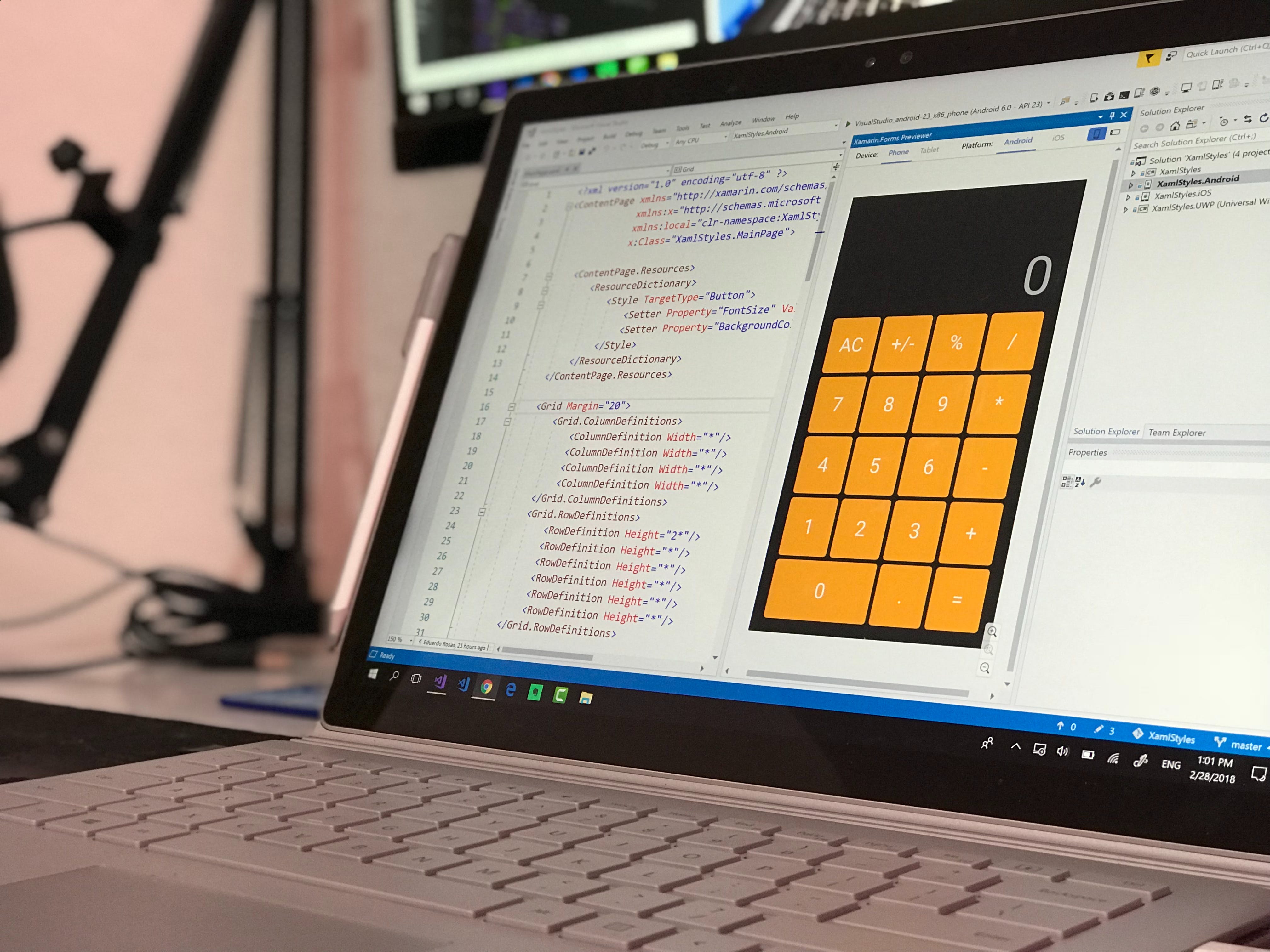Upwork Guide: Mobile App Developer Description Explained!

Finding success on Upwork as a mobile app developer begins with a clear understanding of the platform’s dynamic ecosystem. Upwork is a global freelancing platform that connects professionals with clients in need of their services. For developers specializing in mobile applications, it offers a wealth of opportunities to showcase their skills and secure projects that align with their expertise. An effective mobile app developer description for Upwork is not just about listing skills and experiences; it’s about presenting oneself as the solution to a potential client’s needs in a compelling and accessible manner.
To make an impact, your profile needs to be searchable and stand out among the competition. Incorporating relevant keywords, such as the technologies you specialize in, can improve your visibility on the platform. Furthermore, highlighting your proficiency in various operating systems, programming languages, and development frameworks within your description will demonstrate your versatility and command over the mobile app development landscape.
If you are looking to attract top projects and clients, creating a robust mobile app developer description is crucial. At Biz4Solutions, we understand the nuances of the digital marketplace and can help you craft a profile that resonates with your target audience, driving success and growth in your freelancing career.
Crafting an Engaging Mobile App Developer Profile

When it comes to crafting an engaging mobile app developer profile on Upwork, it’s essential to convey not just your technical prowess, but also your ability to understand and solve client problems. Begin with a strong opening statement that captures your unique value proposition. Follow this with a detailed overview of your technical skills, such as proficiency in Swift for iOS development or Kotlin for Android, as well as your experience with cross-platform frameworks like React Native or Flutter.
But beyond the technical jargon, clients are looking for developers who can communicate effectively, manage projects efficiently, and think critically about design and user experience. Therefore, include any relevant experience that demonstrates these soft skills. For instance, mention any collaborative projects, successful app launches, or times when you’ve gone above and beyond to meet client expectations.
Remember to keep your profile updated with your latest projects and achievements. A portfolio section with links to apps you’ve developed or contributed to can serve as a testament to your work. Client testimonials can also be a powerful addition, offering social proof of your expertise and reliability. By balancing the technical details with a narrative that showcases your problem-solving capabilities, you’ll create a profile that not only catches the eye of potential clients but also tells the story of a developer who can bring their app vision to life.
Key Components of a Successful Upwork Developer Description

Creating a successful mobile app developer description for Upwork revolves around several key components that together, form a compelling narrative of your professional persona. Firstly, a succinct headline that encapsulates your expertise and niche specialization can immediately draw potential clients’ attention. It’s crucial to tailor this to the types of jobs you want to attract.
- Technical Skills: Specify your programming languages, development frameworks, and tools you excel in. Include any certifications or courses that add credibility to your skill set.
- Professional Experience: Highlight your previous work and projects. Detailing the challenges you overcame and the solutions you provided can showcase your problem-solving skills.
- Portfolio: A curated collection of your best work can speak volumes. Include screenshots, brief descriptions, and the impact of each project.
- Ratings and Feedback: Positive reviews from past clients can significantly boost your profile’s trustworthiness. Make sure to maintain high-quality work to gather excellent feedback.
- Communication Skills: Articulate your ability to understand project requirements, provide updates, and maintain transparency with clients. Good communication is often a deciding factor for clients.
- Availability: Be clear about your working hours and responsiveness. Clients value developers who can align with their schedules and timelines.
Each of these components plays a vital role in illustrating your capabilities and work ethic. By effectively combining these elements, your Upwork profile can serve as a powerful channel to connect with clients and secure rewarding projects.
Optimizing Your Profile for Upwork’s Search Algorithm
To enhance your visibility on Upwork and be featured prominently in search results, it’s essential to optimize your profile. Understanding and leveraging Upwork’s search algorithm is key to this process. Start by ensuring your profile is 100% complete; this is a basic but critical step. Upwork favors profiles that offer comprehensive details, as it suggests a commitment to the platform and its potential clients.
Next, incorporate relevant keywords throughout your mobile app developer description. These should be terms that potential clients are likely to search for, such as specific programming languages, project types, or industry niches. Sprinkle these keywords in your title, overview, and job experiences, but avoid keyword stuffing which can appear unprofessional.
Regular activity also boosts your profile’s ranking. This includes applying to jobs, accepting invitations, and updating your portfolio. The algorithm tends to showcase active freelancers more often than those who aren’t engaged.
Finally, client feedback and job success score play a significant role. Maintain a high level of quality in your deliverables to receive positive reviews and increase your job success score. This will significantly raise your profile’s ranking in search results, leading to more visibility and potential job opportunities.
By focusing on these optimization strategies, your profile will be better positioned to appear in front of the right clients, helping you secure more projects that align with your mobile app development skills.
Showcasing Your Mobile App Development Portfolio

As a mobile app developer on Upwork, your portfolio is a visual testament to your skills and expertise. It’s the section where potential clients can gauge the quality and scope of your work. Therefore, it’s crucial to carefully curate your portfolio to highlight your most impressive and relevant projects.
Begin by selecting projects that demonstrate a range of skills. Showcase different types of apps you’ve developed, such as e-commerce, social media, gaming, or productivity apps. This diversity reflects your versatility and ability to handle various development challenges.
For each project in your portfolio, provide a clear and concise description that details your role, the project’s goals, the technologies used, and the outcomes achieved. If possible, include links to the live apps or attach screenshots that show the app’s interface and features.
It’s also advantageous to include case studies or testimonials from previous clients. These can add credibility to your work and provide context for the success of your projects. If you’ve worked on an app that has received accolades or has a significant number of downloads, be sure to highlight these achievements.
Remember, your portfolio should not just display the end product but also tell the story of the development process. This will give clients insight into your problem-solving capabilities and your approach to app development.
By presenting a well-rounded and detailed portfolio, you will be able to capture the attention of potential clients and stand out amongst the competition on Upwork.
Navigating Upwork’s Job Market as a Mobile App Developer

Biz4Solutions, with its expertise in custom software development, understands the intricacies of navigating Upwork’s job market as a mobile app developer. Success on this platform is about more than just having a well-crafted mobile app developer description; it’s about understanding the ebb and flow of job postings and client needs.
Begin by regularly checking for new job listings that match your skills and preferences. Upwork’s platform allows you to set up notifications for specific job types, so you can be one of the first to apply. When you find a suitable project, craft a personalized proposal that highlights how your skills and experience align with the client’s requirements.
Networking is also a key component of success on Upwork. Engage with clients beyond just submitting proposals. Contribute to discussions, offer valuable insights, and build a reputation as a knowledgeable and reliable mobile app developer. This not only increases your visibility but also establishes trust with potential clients.
Pricing your services competitively is essential. Research what other developers with similar skills are charging and find a balance between what’s fair for your level of expertise and what’s attractive to clients. As you build a strong track record, you can gradually increase your rates.
Finally, always strive for excellent communication and project delivery. Positive feedback from clients can lead to repeat business and referrals, which are invaluable for sustained success on Upwork.
Are You Interested in Building a Top-Class Website or Mobile App?
For those looking to elevate their presence on Upwork and beyond, partnering with a seasoned technology solutions provider like Biz4Solutions can offer the professional edge needed to thrive in a competitive market. Our experience in delivering innovative digital solutions can help you to not only craft an outstanding mobile app developer description but also to navigate the complexities of Upwork’s dynamic job market.




